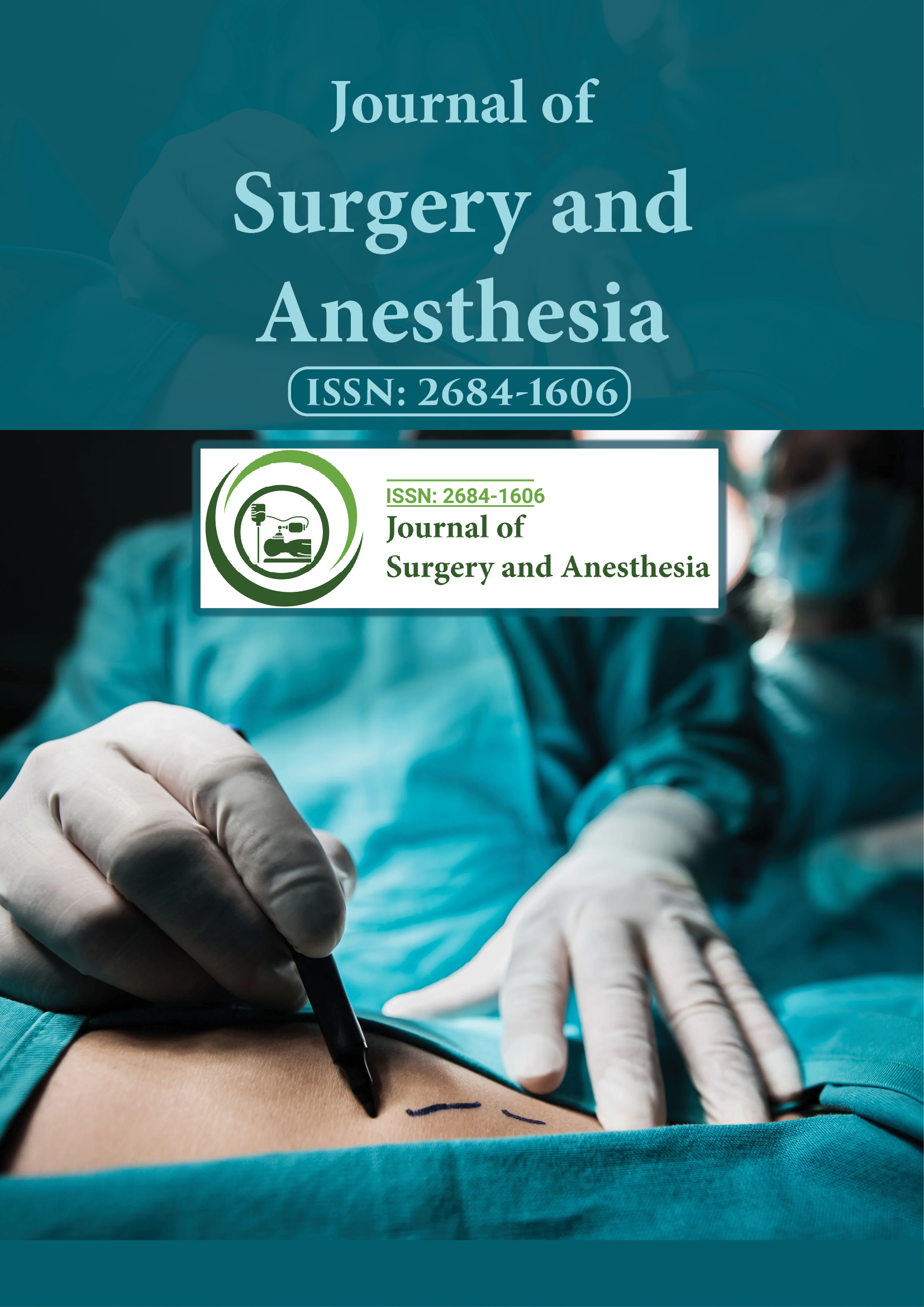Indexed In
- Google Scholar
Useful Links
Share This Page
Journal Flyer

Open Access Journals
- Agri and Aquaculture
- Biochemistry
- Bioinformatics & Systems Biology
- Business & Management
- Chemistry
- Clinical Sciences
- Engineering
- Food & Nutrition
- General Science
- Genetics & Molecular Biology
- Immunology & Microbiology
- Medical Sciences
- Neuroscience & Psychology
- Nursing & Health Care
- Pharmaceutical Sciences
Perspective - (2022) Volume 6, Issue 1
Short Note on Endocrine Surgery
Dina Jeraq*Received: 05-Jan-2022, Manuscript No. JSA-22-169; Editor assigned: 07-Jan-2022, Pre QC No. JSA-22-169 (PQ); Reviewed: 21-Jan-2022, QC No. JSA-22-169; Revised: 24-Jan-2022, Manuscript No. JSA-22-169 (R); Published: 31-Jan-2022, DOI: 10.35248/2684-1606.22.05.169
Description
Endocrine surgery is a surgery that focuses on one or more endocrine organs. Endocrine organs are systemic glands that secrete into the bloodstream hormones that are essential for maintaining homeostasis (i.e., a constant internal environment) and metabolism. These glands together form what is known as the endocrine system, whose control and command centers are the pituitary gland and the hypothalamus. Other endocrine glands are the endocrine pancreas, pineal gland, adrenal glands, thyroid glands, and parathyroid glands. The specialists who perform surgery on these glands are called endocrinologists. In contrast to the exocrine pancreas, which produces enzymes for digestion, the endocrine pancreas secretes hormones, such as glucagon, insulin and gastrin. These are made using special cells called "islet cells". The pancreas is scattered throughout the pancreas, deep inside the abdominal cavity. Tumors can develop in the endocrine pancreas and require surgical resection. Most of these tumors compress adjacent structures and can cause local symptoms. Alternatively, it can cause clinical syndrome due to overproduction of hormones. However, untreated endocrine disorders can cause widespread complications throughout the body. Endocrine disorders usually do not require hospitalization, but can cause serious symptoms in some cases. Related risks include infections, bleeding, and extreme fluctuations in blood pressure. These risks are more important than the medical benefits of surgery.
Types of endocrine surgery
Adrenalectomy: An adrenalectomy is surgery to remove one or both adrenal glands. The adrenal glands are above each kidney. Both adrenal glands produce a variety of hormones that help regulate metabolism, the immune system, blood pressure, blood sugar levels, and other important functions. Humans cannot live without the adrenal glands. Therefore, if both adrenal glands are removed (very rarely needed), the patient should take medications and supplements to provide the hormones they need. The adrenal glands are removed for four main reasons: benign tumors (adenomas) (functional tumors) that cause hormone overproduction, large tumor sizes, cancer that has spread to the adrenal glands from elsewhere in the body (metastasis), or the adrenal glands cancer.
Parathyroidectomy: It is a surgical procedure to remove a parathyroid gland or parathyroid tumor. The parathyroid gland is just behind the thyroid gland in the neck. These glands help your body control the levels of calcium in the blood. Blood calcium levels usually drop after this surgery. When the calcium level in the blood becomes too low, it is called hypocalcemia. If this happens, you may have numbness or tingling on your fingertips, toes, or lips.
Thyroidectomy: It is the surgical removal of all or part of the thyroid gland. The thyroid gland is a butterfly-shaped gland at the base of the neck. It produces hormones that control all aspects of metabolism, from heart rate to calorie burning rates. Despite its importance, you can lead a healthy and normal life without it or with only a small part. However, treatment is needed to prevent potentially serious hypothyroidism (or hypothyroidism). To prevent hypothyroidism, thyroid hormone supplementation should be started.
Thyroid lobectomy: It is the surgical removal of half of the thyroi d gland. The thyroid gland has two lobes, the left lobe and the right lobe. Thyroid lobectomy, which removes one side of the thyroid gland, is suitable for lumps on one side of the thyroid gland and some small thyroid cancers. After lobectomy, thyroid hormone levels should be checked and thyroid hormone supplementation should be needed. Neck pain, vocal cord pain, or weak voice may occur in the weeks following thyroid surgery. These symptoms are usually temporary.
Cells of embryological origin of the neural crest can develop into neuroendocrine tumors. These are commonly found in the lungs and gastrointestinal tract and cause symptoms due to hormone production. Surgery is performed under general anesthesia because both endocrine pancreatic tumors and neuroendocrine gland tumors are found deep in the abdominal cavity. In some cases, it may be necessary to remove part of the intestines or pancreas. Endocrine disorders can be difficult to diagnose because their symptoms are very similar to those of other disorders. Our team of trusted professionals has the experience and skills to provide accurate diagnostics. There are many diagnostic tests for endocrine surgery, including:
• Urinalysis to rule out other problems such as infections and kidney problems
• Imaging tests including CT and MRI to assess tumors or cancers and plan treatment
• Genetic testing to check for genetic abnormalities that increase the risk of endocrine disorders or affect response to treatment.
Citation: Jeraq D (2022) Short Note on Endocrine Surgery. J Surg Anesth. 6:169.
Copyright: © 2022 Jeraq D. This is an open-access article distributed under the terms of the Creative Commons Attribution License, which permits unrestricted use, distribution, and reproduction in any medium, provided the original author and source are credited.
